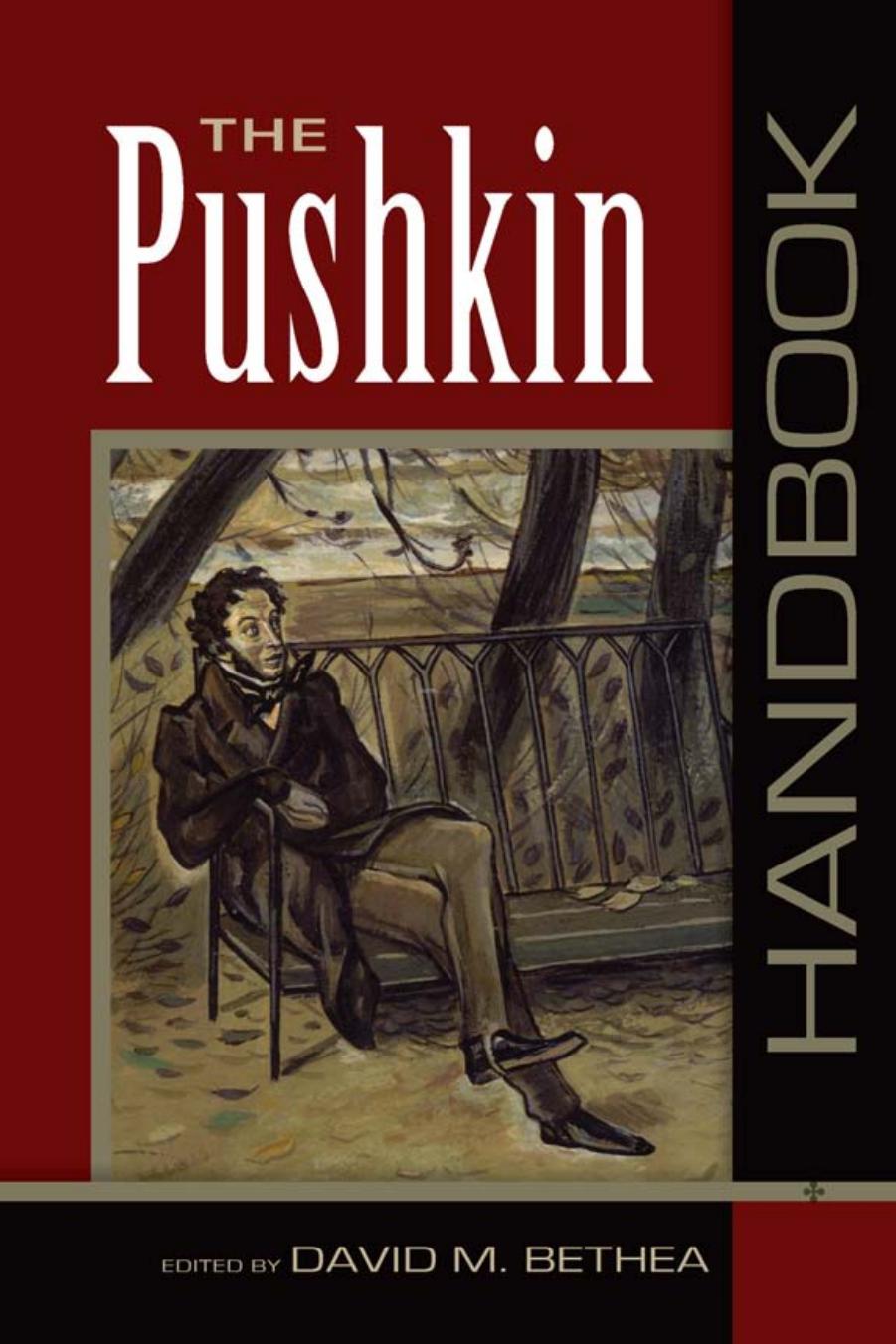The Pushkin Handbook by David M. Bethea

Author:David M. Bethea [Bethea, David M.]
Language: eng
Format: epub, pdf
Publisher: University of Wisconsin Press
The gawky Kiukhel’beker (or “Kiukhlia,” as he was nicknamed at the lyceum) was the favorite laughing stock of his classmates, and Pushkin’s irony toward his ill-starred friend was not canceled by the 1825 tragedy. Ryleev accepted the ecstatic and politically naive Kiukhel’beker into the Northern Union three days before the uprising, and for his attempt at the life of the Grand Prince Mikhail, the novice-rebel almost ended up as the sixth hanged man. In his turn, Kiukhel’beker, who was the teacher of Pushkin’s younger brother Lev, tried to recruit his pupil into the Union on the day of the uprising. Amused by Lev’s stories, Pushkin drew a well-known caricature of Kiukhel’beker and Ryleev on the Senate Square. Kiukhel’beker, in tailcoat and top hat, with a long pistol in one hand and a police sword in the other, resembling a marionette duelist, takes aim at an invisible target. Behind his back stands the instigator Ryleev, enshrouded in an antique overcoat with multiple folding collars, and in bemused indolence observes the quixotic combat (illustration 2).69 Pushkin liked to tease Kiukhel’beker but always loved him, a fact borne out by the dedication of “K drugu stikhotvortsu” [To a Versifying Friend (1814)], Pushkin’s first published poem, to him. Quite unexpectedly fate arranged for their paths to cross in 1827 when Pushkin embraced his friend for the last time. The two met at the station Zalazy during Kiukhel’beker’s transfer to another fortress. Pushkin remained a true friend; in the 1830s he succeeded in publishing several of Kiukhel’beker’s works and attempted to send to him in Siberia—via the Third Section—his own works.70 But let us return to “Arion.”
Yes, Pushkin might have waxed ironical over some of his Decembrist friends and their cause. And yes, one can even claim that Pushkin’s relationship with Nicholas I (“You are now my Pushkin”) bore a certain affinity to Arion’s liaison with Periander—that is, both bards interceded before their king on behalf of a third party. However, to argue the case of robbery or an attempt on the poet’s life remains a daunting task. This is presumably why critics dismiss the connection between Pushkin’s poem and the Arion legend as loose and irrelevant, disregarding how meticulous Pushkin usually was in rendering mythological subjects.71 Reluctant to dismiss offhand the Arion legend as irrelevant to Pushkin’s “Arion,” I would like to suggest a possible reading which would be more consonant with the original legend.
In the aftermath of the Decembrist uprising it became clear to Pushkin that the mutineers not always selflessly and honorably embraced the hymns of the “mysterious singer.”“All incendiary manuscripts circulated under my name,” complained Pushkin to Viazemskii, while others appeared under false titles and in mutilated versions.72 The line from “The Village” (1819) in which Pushkin called for “serfdom fallen by the Tsar’s fiat” [I rabstvo padshee po maniiu tsaria] became in the apocryphal version a seditious exhortation: “And fallen serfdom and the fallen Tsar” [I rabstvo padshee i padshego tsaria]. “The Dagger” was recited in the Secret Society of the United Slavs as a pledge of readiness for regicide.
Download
This site does not store any files on its server. We only index and link to content provided by other sites. Please contact the content providers to delete copyright contents if any and email us, we'll remove relevant links or contents immediately.
Aircraft Design of WWII: A Sketchbook by Lockheed Aircraft Corporation(32290)
The Great Music City by Andrea Baker(32019)
Call Me by Your Name by André Aciman(20516)
The Secret History by Donna Tartt(19088)
The Art of Boudoir Photography: How to Create Stunning Photographs of Women by Christa Meola(18626)
Shoot Sexy by Ryan Armbrust(17728)
Plagued by Fire by Paul Hendrickson(17412)
Portrait Mastery in Black & White: Learn the Signature Style of a Legendary Photographer by Tim Kelly(17006)
Adobe Camera Raw For Digital Photographers Only by Rob Sheppard(16976)
Photographically Speaking: A Deeper Look at Creating Stronger Images (Eva Spring's Library) by David duChemin(16687)
Ready Player One by Cline Ernest(14675)
Pimp by Iceberg Slim(14507)
Bombshells: Glamour Girls of a Lifetime by Sullivan Steve(14075)
The Goal (Off-Campus #4) by Elle Kennedy(13673)
Art Nude Photography Explained: How to Photograph and Understand Great Art Nude Images by Simon Walden(13046)
Kathy Andrews Collection by Kathy Andrews(11831)
The Priory of the Orange Tree by Samantha Shannon(9098)
The remains of the day by Kazuo Ishiguro(8999)
Thirteen Reasons Why by Jay Asher(8910)
